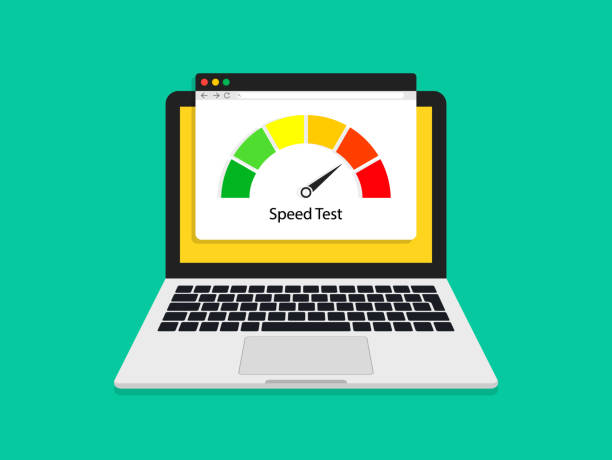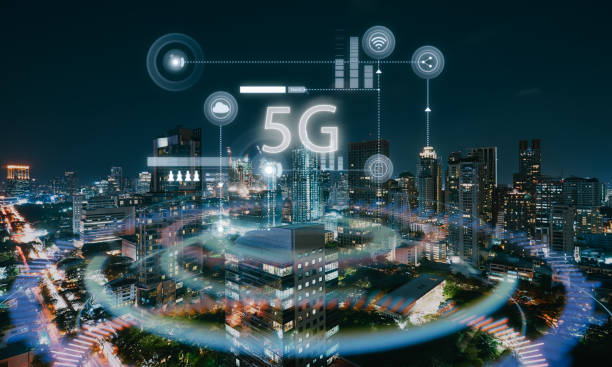In our rapidly evolving digital age, where connectivity is the backbone of daily life, understanding the nuances of internet speed has become paramount. Welcome to “Your Ultimate Guide to Fast Internet Speed,” a comprehensive exploration of the factors, tips, and trends that shape your online experience. Whether you’re a casual user, remote worker, or avid gamer, this guide is your key to navigating the complexities of internet speed, ensuring a smoother and more efficient online journey. Let’s embark on a journey to demystify the world of internet speed and unlock the full potential of your digital life.
First things first—How do you check your internet speed?
Checking your internet speed is a straightforward process. Here is a step-by-step guide:
Choose an Online Speed Test Tool:
Select a reliable online speed test tool. There are several popular options available, such as Ookla Speedtest, Fast.com, or Google’s Speed Test.
Close Unnecessary Applications:
Before running the test, close any unnecessary applications or devices that might be using your internet connection. This ensures a more accurate measurement.
Connect to Your Network:
Ensure that your device is connected to the network you want to test. If you’re using Wi-Fi, make sure you’re close to the router for the most accurate results.
Run the Speed Test:
Open the chosen speed test website and click on the “Go” or “Start” button. The tool will then measure your internet speed in terms of download and upload speeds.
Interpret the Results:
Once the test is complete, the tool will display your download and upload speeds in Megabits per second (Mbps). Download speed indicates how fast data can be received, while upload speed measures the rate of sending data.
Compare with Your Internet Plan:
Check your internet plan to see the expected speed. If the results are significantly lower than what you’re paying for, there may be an issue with your connection.
Run Multiple Tests:
For a more accurate assessment, run the test multiple times at different times of the day. Internet speeds can vary, so this helps identify any consistent issues.

Factors Affecting Fast Internet Speed
Internet speed can be influenced by various factors, and understanding these elements is crucial for optimizing your online experience. Here are the key factors that affect internet speed:
Bandwidth:
Bandwidth refers to the maximum rate at which data can be transmitted over an internet connection. The higher the bandwidth, the more data can flow, resulting in faster internet speeds.
Type of Connection:
Different types of internet connections offer varying speeds. Common types include DSL (Digital Subscriber Line), cable, fiber-optic, satellite, and mobile networks. Each has its own speed characteristics, impacting your overall internet experience.
Hardware and Software:
The devices you use and the software you run on them can affect internet speed. Outdated equipment or inefficient software may hinder your connection’s performance.
Network Congestion:
During peak usage times, such as evenings when many people are online, network congestion can occur. This increased demand for bandwidth can slow down internet speeds for users sharing the same network.
Distance from the Source:
For certain types of connections, such as DSL or satellite, the physical distance between your location and the internet service provider’s (ISP) source can impact speed. Longer distances may result in slower connections.
Number of Connected Devices:
The number of devices connected to your network can influence fast internet speed. More devices sharing the same connection may lead to reduced speeds for each device.
Quality of Wiring:
For wired connections like DSL or cable, the quality of the wiring in your home or office can affect internet speed. Poor or damaged wiring may cause signal loss and slower speeds.
Interference:
Wireless connections, such as Wi-Fi, can experience interference from other electronic devices, neighboring networks, or physical obstacles. This interference may impact the reliability and speed of your connection.
Weather Conditions:
There are certain types of internet connections, like satellite, that can be affected by adverse weather conditions. Storms, heavy rain, or extreme temperatures may interfere with the signal and reduce internet speed.
Router Performance:
The quality and performance of your router play a crucial role in internet speed. An outdated or low-quality router may not efficiently handle higher-speed internet plans.

| Call 866-861-4084 for Internet Deals |
Tips to Improve Internet Speed
Enhancing your internet speed involves a combination of optimizing your setup, choosing the right plan, and addressing potential issues. Here are some valuable tips to improve your internet speed. Check them out now:
Upgrade Your Internet Plan:
Consider upgrading to a higher-speed internet plan if your current one doesn’t meet your needs. ISPs offer various plans to accommodate different usage levels.
Optimize Your Wi-Fi Connection:
Also, position your router in a central location to ensure optimal coverage. Choose the right Wi-Fi channel to minimize interference from neighboring networks, and secure your network with a strong password to prevent unauthorized access.
Use a Wired Connection:
For devices that require a stable and high-speed connection, such as gaming consoles or desktop computers, use a wired Ethernet connection instead of Wi-Fi.
Regularly Update Devices:
Make sure that your devices, including computers, smartphones, and routers, have the latest software updates. Because outdated software can lead to performance issues.
Clear Browser Cache:
Clearing your browser’s cache regularly can improve internet speed by removing temporary files that might be slowing down your browsing experience.
Limit Background Applications:
Close unnecessary applications and background processes on your devices. Well, applications running in the background can consume bandwidth and affect internet speed.
Check for Malware and Viruses:
Very importantly, Malware and viruses can impact your fast internet speed. So, run regular security scans on your devices to detect and remove any malicious software.
Upgrade Your Router:
If you’ve had your router for several years, consider upgrading to a newer model. Newer routers often come with improved technology and better performance.
Monitor Connected Devices:
Keep track of the number of devices connected to your network. Disconnect devices not in use to free up bandwidth for devices that need a faster connection.
Adjust Video Streaming Quality:
When streaming videos, adjust the quality settings based on your internet speed. Lowering the video quality can reduce buffering and improve overall streaming performance.
Common Internet Speed Issues
Lagging in Online Games
For gamers, lag can be a game-changer. Understanding how to reduce latency and improve gaming performance is key.
Slow Downloads
Slow download speeds can impede productivity. Explore methods to expedite downloads and optimize your online activities.
Buffering
One of the common issues we face is buffering during streaming or online gaming which can be frustrating at times. Addressing common causes, such as insufficient bandwidth, can mitigate these issues.

Internet Speed and Different Online Activities
Your fast internet speed plays a pivotal role in the quality of various online activities. Different online tasks have distinct requirements, and understanding how internet speed influences them can help you optimize your experience. Here’s a breakdown of how internet speed impacts different online activities:
Streaming Videos:
High-Speed Requirement: Streaming services, such as Netflix or YouTube, demand a consistent and high-speed connection. Insufficient speed may result in buffering, lower resolution, or interrupted playback.
Video Conferencing:
Stable Connection Needed: Video conferencing platforms like Zoom or Microsoft Teams require a stable and reliable internet connection. Higher speeds ensure smooth video and audio quality during virtual meetings.
Online Gaming:
Low Latency Essential: Online gaming is sensitive to latency, the delay between input and response. Faster internet speeds with low latency are crucial for a seamless gaming experience, reducing lag and enhancing responsiveness.
Downloading Large Files:
Higher Speeds for Quicker Downloads: Downloading large files, whether it’s software updates or multimedia content, is significantly faster with higher internet speeds. Slow speeds can lead to prolonged download times.
Uploading Content:
Faster Upload Speeds Preferred: Activities like uploading videos to platforms like YouTube or sharing large files on cloud services benefit from faster upload speeds. Slow uploads can be frustrating for content creators.
Web Browsing:
Basic Speed Requirement: Basic web browsing doesn’t demand extremely high speeds, but a decent connection ensures quick page loading and responsiveness, contributing to a smooth browsing experience.
Social Media Usage:
Moderate Speed Adequate: Using social media platforms like Facebook, Instagram, or Twitter doesn’t require extremely high speeds. However, a moderate speed ensures timely loading of images and videos.
Online Shopping:
Steady Connection Preferred: While online shopping doesn’t necessitate very high speeds, a steady connection is essential for quick page loading, smooth navigation, and secure transactions.
| Call 866-861-4084 for Internet Deals |
Future Trends in Internet Speed
Fiber Optic Expansion
Fiber-optic internet is rapidly expanding. Understand how this technology can revolutionize internet speeds.
Technological Innovations
Stay ahead of the curve by exploring upcoming technological innovations that could further elevate internet speed standards.
5G Technology
The advent of 5G promises unprecedented internet speeds. Explore the potential impact of 5G on connectivity.

The Impact of Internet Speed on Business
Internet speed has a profound impact on businesses in today’s digital landscape. As technology continues to advance, businesses rely heavily on a fast and reliable internet connection to facilitate various operations. Here is an exploration of the significant impact of internet speed on different aspects of business:
E-commerce:
- Website Performance: For e-commerce businesses, a fast website is essential. Quick page loading times contribute to a positive user experience, reducing bounce rates and increasing the likelihood of sales. Slow-loading pages can lead to frustrated customers and lost revenue opportunities.
Digital Marketing:
- Content Delivery and Analytics: Digital marketing strategies, including content delivery, social media campaigns, and data analytics, rely on a fast internet connection. Speed is vital for real-time data analysis, ensuring marketing efforts are agile and responsive to market trends.
Cloud Computing:
- Efficient Operations: Many businesses leverage cloud-based applications and services for storage, collaboration, and data processing. Faster internet speeds enhance the efficiency of these operations, allowing seamless access to cloud resources without delays.
Customer Support:
- Virtual Assistance and Communication: High-speed internet enables businesses to provide efficient customer support through virtual assistance, live chats, and video calls. Quick response times contribute to improved customer satisfaction and loyalty.
Remote Work:
- Productivity and Collaboration: With the rise of remote work, a high-speed internet connection is crucial for seamless collaboration and increased productivity. Fast internet ensures employees can access company resources, attend virtual meetings, and collaborate on projects without disruptions.
Conclusion
In conclusion, your internet speed is a dynamic aspect of your online experience. By understanding the factors influencing speed, optimizing your connection, and staying informed about emerging technologies, you can ensure a fast and reliable internet connection tailored to your needs.
FAQs
How often should I check my internet speed?
Regularly checking your internet speed is advisable, especially if you notice performance issues or if you’ve made changes to your setup.
Can I improve my internet speed without changing my plan?
Yes, optimizing your Wi-Fi setup, updating devices, and performing routine maintenance can enhance your internet speed.
What impact does 5G technology have on internet speed?
5G technology promises significantly faster internet speeds, revolutionizing connectivity for various applications.
How does net neutrality affect internet speed?
Net neutrality plays a crucial role in ensuring equal access to internet speeds, preventing discrimination by ISPs.
Are there global standards for internet speed?
While there are no universal standards, certain countries consistently rank higher in terms of internet speed, influenced by infrastructure and policies.

Meet Jennifer Harper, a wordsmith extraordinaire who has been shaping the digital landscape with her creative prowess for the past two years. Not just a content writer; she is a storyteller who brings the content to life. Her passion for internet trends, memes, and the ever-evolving world of entertainment is evident in every piece she creates. Jennifer doesn’t just follow trends; she sets them.